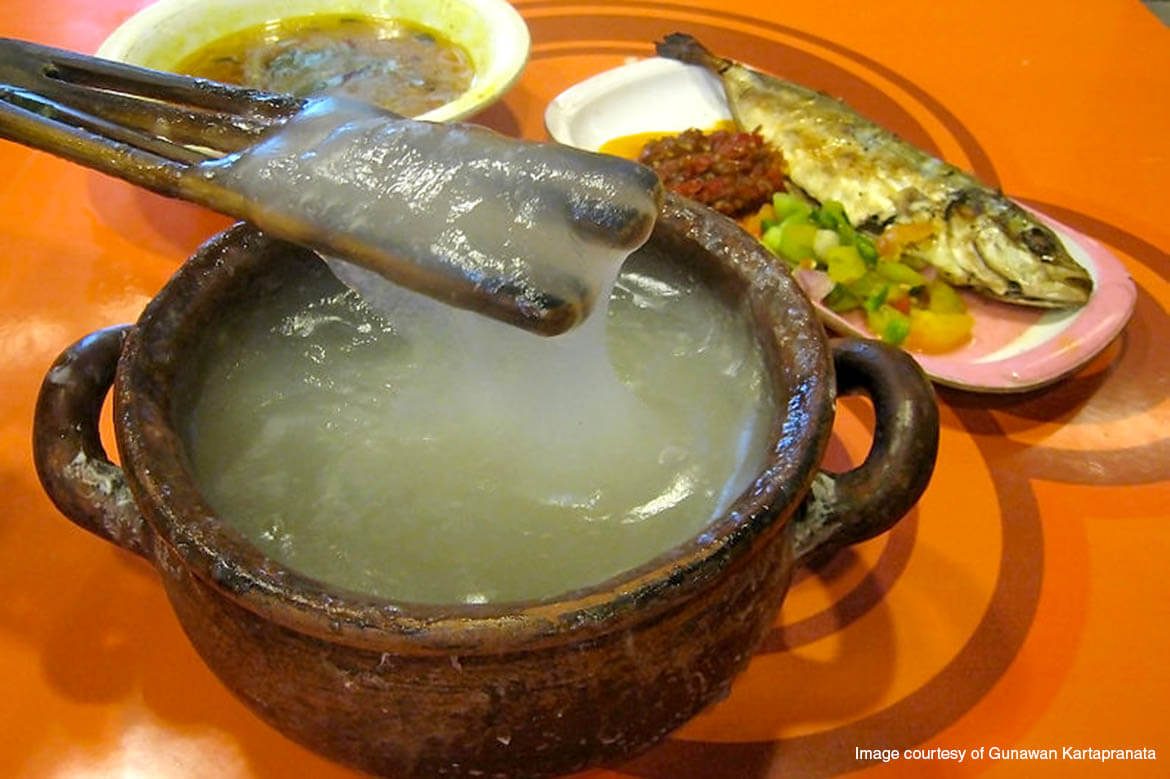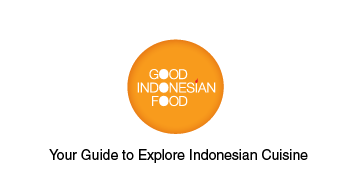
Ever since we were children, we have been taught that the staple food of Indonesia is rice. Even if you find yourself out on the countryside in Java, you will see vast green paddy fields where paddy is harvested to produce rice. This train of thought, however, does not apply to the inhabitants of East Indonesia. Due to the exorbitant price of rice and the near-absence of paddy fields, sago has become the chief sustenance for the people of Maluku and Papua.
In this part of the country, sago is processed to produce a unique dish called Papeda (sago congee). For the sake of your curiosity, Papeda is a white-coloured sago porridge that is thin in flavour and which texture resembles lem kanji (wheat paste). Generally served with Ikan Tongkol Kuah Kuning (mackerel tuna in yellow soup), Papeda tends to also be paired with other types of fishes, including ikan gabus (snakehead murrel), kakap merah (red snapper), ikan kue (pompano), and ikan bubara (trevally). Another companion that would usually complement a Papeda is Sayur Ganemo (young gnetum gnemon leaves stewed with young papaya leaves and red chilli). Because of its viscous consistency, Papeda is usually consumed by using a spoon. The way you eat it is also quite unique in itself: you have to scoop up a little piece and then sup it up as much as you can.
Also read: The Differences between Es Pisang Ijo and Es Palu Butung
Perhaps many may question the consequences that eating Papeda may bring to one’s digestive system. Well, Papeda is rich in fibre, low in cholesterol, and highly nutritious. Sago is known to alleviate conditions including arteriosclerosis, liver pain, and gastric. Its low glycaemic index level is also safe enough to be consumed by sufferers of diabetes. The fibre contents of Papeda can function as a prebiotic, boost the immune system, reduce the risk of cancer to the lung and colon, help in preventing obesity, and improve bowel movement. Eastern Indonesians believe that consuming Papeda on a regular basis can cure kidney stones and gradually purge the lungs, with the latter beneficial for smokers.
Papeda has a “twin sibling” in Malaysia called Linut, while it is known as Ambuyat in Brunei Darussalam. Papeda is still very much a rarity in Jakarta as there is still a dearth of restaurants specialising in Papuan or Maluku cuisine in our capital city. Those who would like to have a taste of the exotic food from East Indonesia can pay a visit to Restoran Yougwa in Kelapa Gading – a branch of the Restoran Yougwa that is found in Danau Sentani, Jayapura.












NO COMMENT